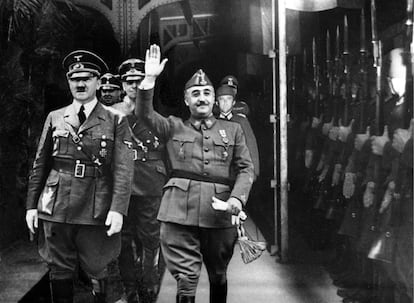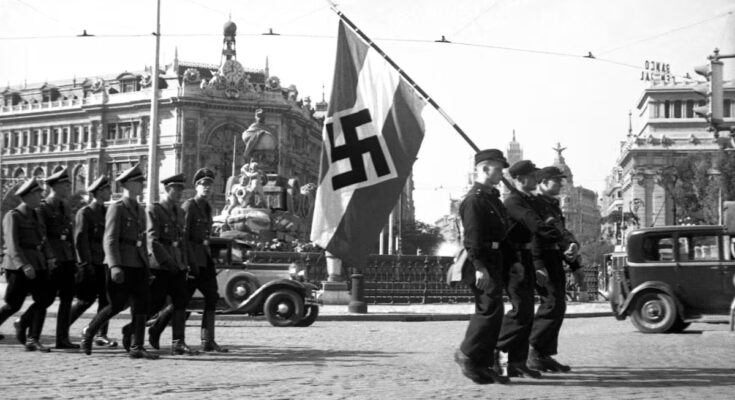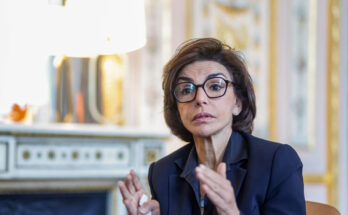Between 1973 and 1975, at the height of the violence of Francoism, the British historian Ronald Fraser traveled across Spain to collect testimonies of the civil war and the post-war period, as if he sensed that the moment would come when memory would become a battlefield in an increasingly divided country. During the investigation he thought that, in the end, he would have problems with the police because he was still a foreigner who asked too many questions. Every time he finished a cassette with the testimonies, he sent it to France for fear of it being seized. But, miraculously, he was able to work undisturbed and, after the death of the dictator, he published a book that gained importance over the years, Remember this yourself and remind others. Oral history of the Spanish Civil War (Criticism, translation by Jordi Beltrán).
The title, taken from lines written by the poet Luis Cernuda after a meeting in San Francisco with a former member of the brigade (“Remember him and remind others / When you are disgusted by human baseness / When you are angry at human harshness / Only this man, only this act, only this faith / Remember it yourself and remind others”), reflected the desire to peer with honesty and rigor into the abyss of Spain’s history, an intention that lasted until the 21st century. The amnesty law may be criticized today, the fact that crimes against humanity were never prosecuted may be shocking, but it was a law wanted above all by the left and, as 23-F demonstrated, the road to full democracy was narrow and dangerous.
But that law did not imply a pact of oblivion, many historians have struggled to try to understand the cruelest past of the 20th century, a task that has also involved the democratic right (although the graves remained buried under a cloak of silence until the 21st century). The idea that Franco’s dictatorship was indeed a dictatorship and that the crimes of one side neither erased nor justified those of the other was widely recognized. Ian Gibson, biographer of Federico García Lorca, gifted with undoubted left-wing sensitivity, published a book in the 1980s on the Paracuellos massacre, perpetrated in the first months of the war in Madrid by anarchist and communist militiamen. To say that republican violence was forgotten during the Transition is a lie, one of many created in recent years. What is certain is that these victims, who fell for God and for their country, have been commemorated for 40 years, even if by an authoritarian state, and have continued to be so since 1987 and up to today by a Catholic Church which has had the task of beatifying them without anyone accusing them of reopening wounds. Meanwhile, Republican victims remained subjected to what the cartoonist Miguel Gallardo called “a long silence” in a book about his father, a Republican official, or lay unworthily in the depths of oblivion.
Among the fathers of the Constitution there was a former Francoist minister, Manuel Fraga, who however agreed to sign a legal text that restored to the Spanish the freedoms lost after the Second Republic, even in then delicate issues such as the autonomy of the Basque Country and Catalonia – even if later in the constitutional debate Fraga opposed the concept of nation, but did not have enough votes to stop it -, civilian control of the army or public and non-denominational education. On November 20, 2002, Congress unanimously approved, with the votes of the PP, a condemnation of the 1936 coup, made “moral recognition” to those who “suffered the repression of Franco’s dictatorship” and promised aid for the reopening of mass graves. Twenty-three years later, that consensus has blown up.
Historians (a very generous term for professional manipulators who choose only what interests them from the facts and who intend to use the past, they don’t know it), journalists (another very generous term) or politicians obsessed with dividing society have started to change the past with increasing intensity. The need for reparation on the part of the relatives of the still missing victims has transformed into resentment and reopening of the wounds of the past (as if they could be closed without knowledge and reparation); the Second Republic in a moment of atrocious violence that justified a military intervention that aimed to restore order, not subvert it; and the ruthless and cruel post-war repression in a severe justice, but still justice, because – according to this denialist version – the majority of those shot had blood crimes.
It is a strategy that does not seek to deny Franco’s crimes, but rather to minimize them, almost to the limit of justification, without falling into it. It wasn’t right to shoot the Thirteen Roses, no doubt, but they weren’t completely innocent either and we already know what they are like in the post-war period. Franco, who would not have won the war without the help of Hitler and Mussolini and who distanced himself from the Axis powers only when he realized that their defeat was inevitable, became a savior of the Jews during the Holocaust, when the consuls of Bordeaux and Thessaloniki were dismissed for “serving the interests of the Jews” and nothing was done for the republicans interned in Nazi camps. Realities that they tried to mask thanks to the courage of Ángel Sanz Briz – who saved thousands of Jews in Budapest – who was not allowed to receive the title of Righteous Among the Nations by Israel. The photos of the streets of Madrid full of Nazi flags during the first years of the Franco regime become uncomfortable documents of a past that, apparently, did not happen.

There is also a dissociation strategy: separating the military Franco, hero of the Moroccan war and tasked by the Republic with putting an end to the rebellion in Asturias, from the dictator Franco. It is interesting that in France a similar operation was launched to cover up the Vichy regime, with a distinction between Pétain the hero of the Great War and Pétain the dictator, and arguments as strange, racist and dangerous as claiming that the collaborationist regime deported foreign Jews (even if they had been in France for several generations); but he saved the French.
The demons began in 1931, not 1936, the Civil War saved Spain from being a satellite of Stalin and, after a few difficult years, Francoism became a soft dictation with the creation of a middle class in a security environment, with a public health system. Better not to remember the torture of Antonio González Pacheco Billy the little boy in the former General Directorate of Security, now the headquarters of the Community of Madrid, nor to political prisoners with plaques, to prevent the spell from breaking that transforms a fascist dictatorship into an authoritarian version of the Nordic welfare state.
The most serious thing is that all these hoaxes do not only look to the past, but also to the future, because their intensification coincides with the growth of a far-right party obsessed with canceling the laws of democratic memory. If Francoism were not a dictatorship, if Franco had given the Spaniards peace and security – and moreover spared them the inconveniences of an election day – what stops us from adopting some of his positive qualities? After all, as Elon Musk argued during the German election campaign in which he supported the AfD ultras, Hitler was bad because he was a communist. It may seem ridiculous, like a cartoon of Martínez el Facha, but it is part of an offensive in which we can put at risk some of the freedoms recovered in a long process that began with the death of the dictator 50 years ago.



